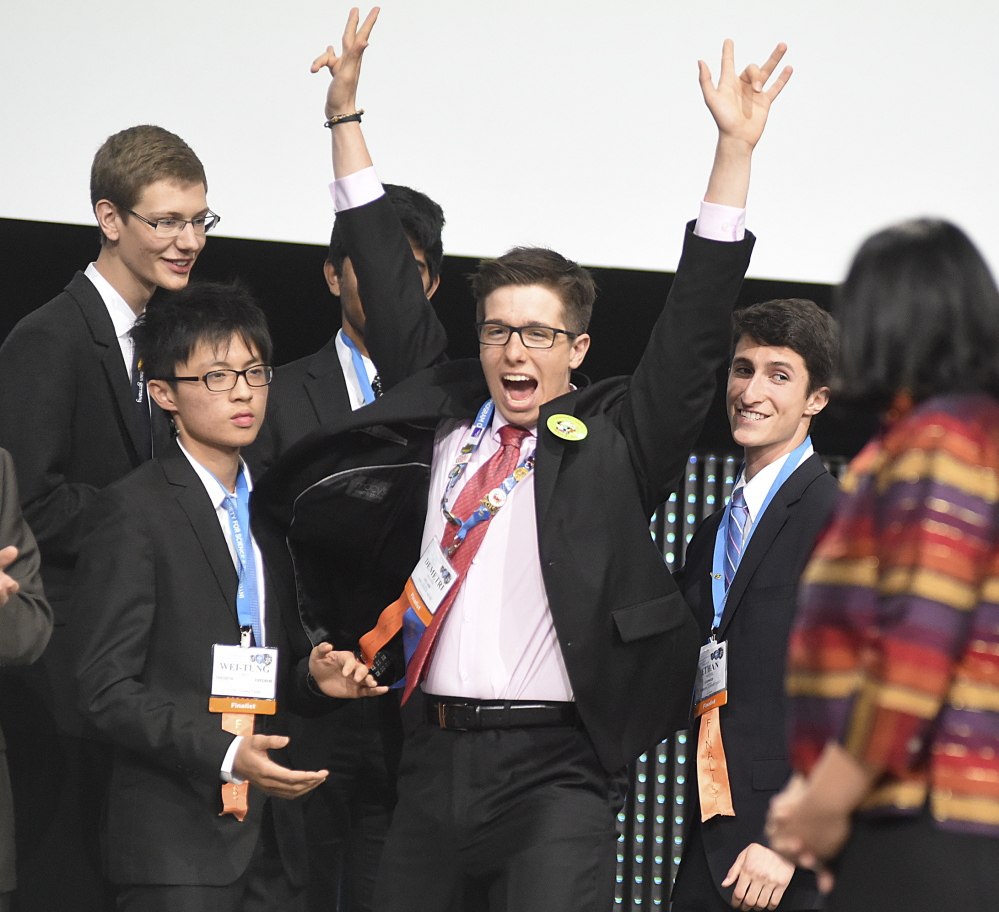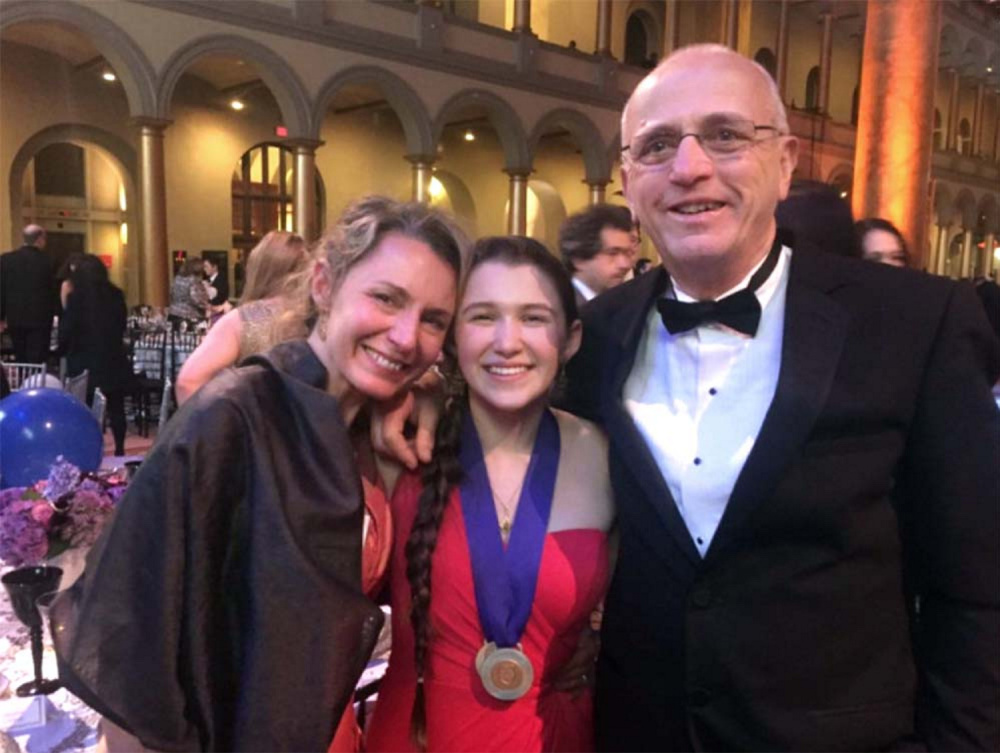Paige Brown has been in nerd heaven much of this week.
The Bangor High School senior took her science project, on removing phosphorus from water, to the Intel International Science and Engineering Fair in Phoenix, where she won a first-place award in the environmental engineering category.
Another Maine student, Demetri Maxim, from Gould Academy in Bethel, also earned first-place honors. His project, which focuses on growing kidney cells from skin tissue to reduce the possibility of a kidney transplant recipient’s body rejecting a donated organ, won in the translational medical science category, one of 22 at the competition that drew 1,700 entrants from 75 countries. Each received $3,000 with their award.
Maxim also has won awards from NASA, the China Association for Science and Technology, and the Patent and Trademark Office Society, said Stefany Burrell, a science, technology, engineering and math education specialist with the Maine Mathematics and Science Alliance. The Gould senior is the great-great-great-grandson of Hiram Maxim, the Sangerville native who invented the first portable machine gun and battled with Thomas Edison over the patent for the light bulb.
A third student, Sydney McDonald of Bangor High School, also attended the international science event, but did not win an award for a project on creating artificial muscles. Burrell said it was McDonald’s first trip to the international fair and it’s unusual for a first-timer to win an award.
Both Maxim and Brown have been to the ISEF before. Maxim won first place in the cellular and molecular biology category last year and competed at the fair two years ago, but did not win.
Brown, who is headed to Stanford University in the fall, said phosphorus pollution is a problem in streams and ponds around Bangor, a finding she verified in a previous science project. The chemical is washed into the water from storm runoff, which picks up fertilizer, grass clippings, dead leaves and other materials that contain phosphorus, she said by telephone from Phoenix on Friday night.
When phosphorus builds up in the water, it creates algae blooms that cover the surface and choke off sunlight, killing off plants that grow in the water. Then, when the algae breaks down, it reduces dissolved oxygen in the water, killing fish and other animals in the water.
Brown created a system that causes the phosphorus to clump, making it easier to be captured by a device that she also created.
She plans to test it in detention ponds this summer and then, while attending college, to create a company to manufacture the devices for commercial applications.
Brown embraces being a “nerd.”
“I would say definitely, I’m a nerd and I’m very proud to declare that,” she said as she and Burrell were headed to Sedona, Arizona, to check out the famous red rock formations.
“Being a nerd just means you’re passionate about something, and everyone should have something they’re passionate about and be called a nerd,” she said.
Brown said an interest in science and mechanics runs in the family. Her father is a mechanical engineer on a cargo ship and her younger brother is interested in electrical and mechanical engineering, but as an eighth-grader, he hasn’t been to the International Science Fair.
Burrell said top winners from the Maine State Science Fair are chosen to go to the international event. The Maine State Science Fair is sponsored by the Maine Mathematics and Science Alliance and the Jackson Laboratory, which is headquartered in Bar Harbor.
Send questions/comments to the editors.





Success. Please wait for the page to reload. If the page does not reload within 5 seconds, please refresh the page.
Enter your email and password to access comments.
Hi, to comment on stories you must . This profile is in addition to your subscription and website login.
Already have a commenting profile? .
Invalid username/password.
Please check your email to confirm and complete your registration.
Only subscribers are eligible to post comments. Please subscribe or login first for digital access. Here’s why.
Use the form below to reset your password. When you've submitted your account email, we will send an email with a reset code.